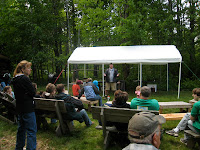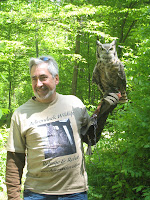Free Museum Days

Even with criticism of over-scheduled youth, there is still a part of me that believes carefully laid out plans and a boxed lunch can accomplish anything. The voice in my head warns me that we’re one pit stop away from complete chaos. The other devil argues that just a small percentage of kids are over-scheduled while a good portion do nothing at all. So I justify our carefully laid out plans knowing we will be waylaid along the way. That said, the June 6th Plattsburgh Museum Day seems more museum marathon than museum day. This is not an open door to one museum but eight different venues offering lectures, children activities and free admission. I spin briefly wondering how to fit it all in. The earliest event is the North Country Underground Railroad Historical Association Conference at SUNY Plattsburgh (8:30-10:00 a.m.) where one can learn about the Champlain Valley Underground Railroad Canadian connection. Then perhaps to the Feinberg Library where films on the Underground Railroad,...

